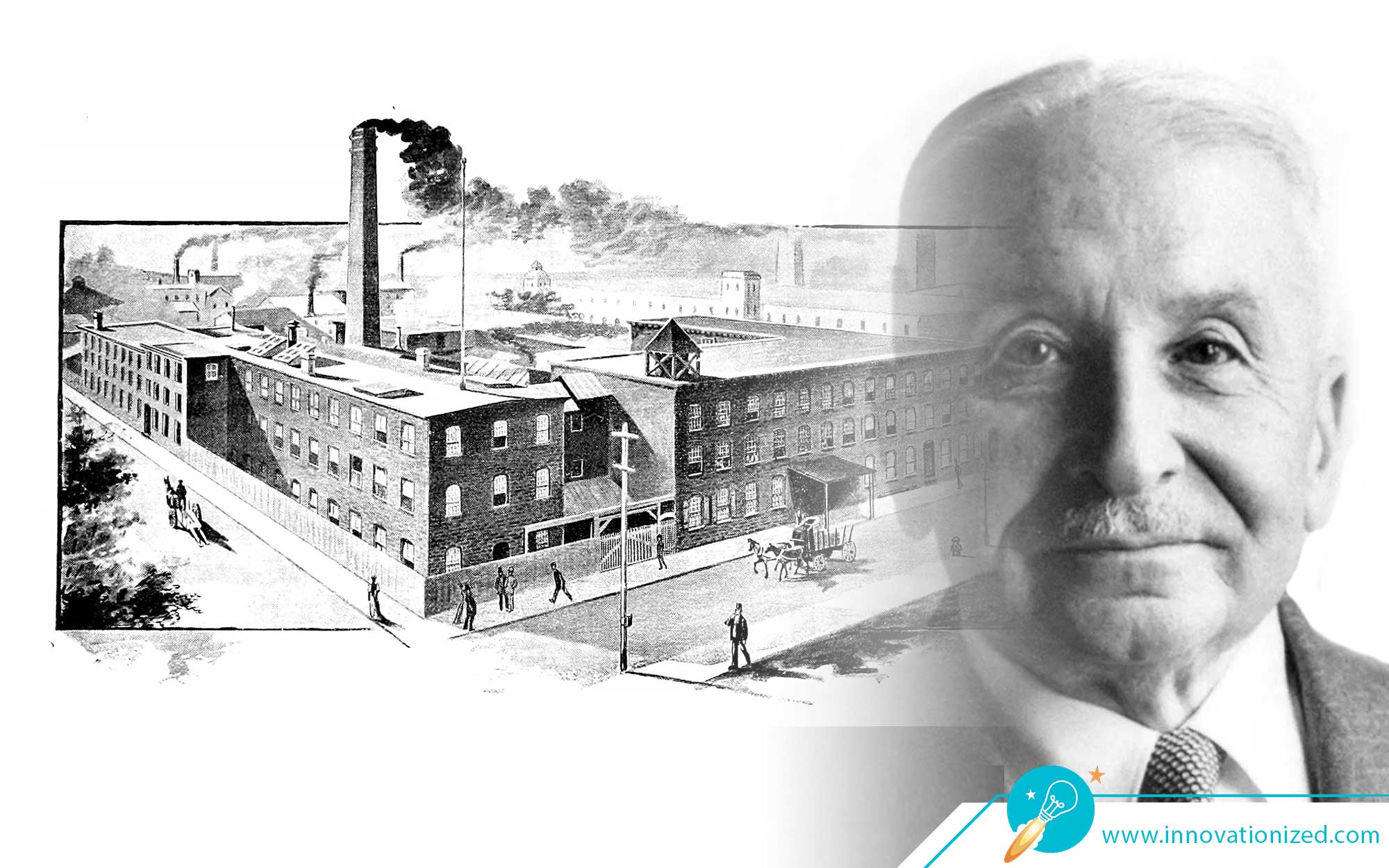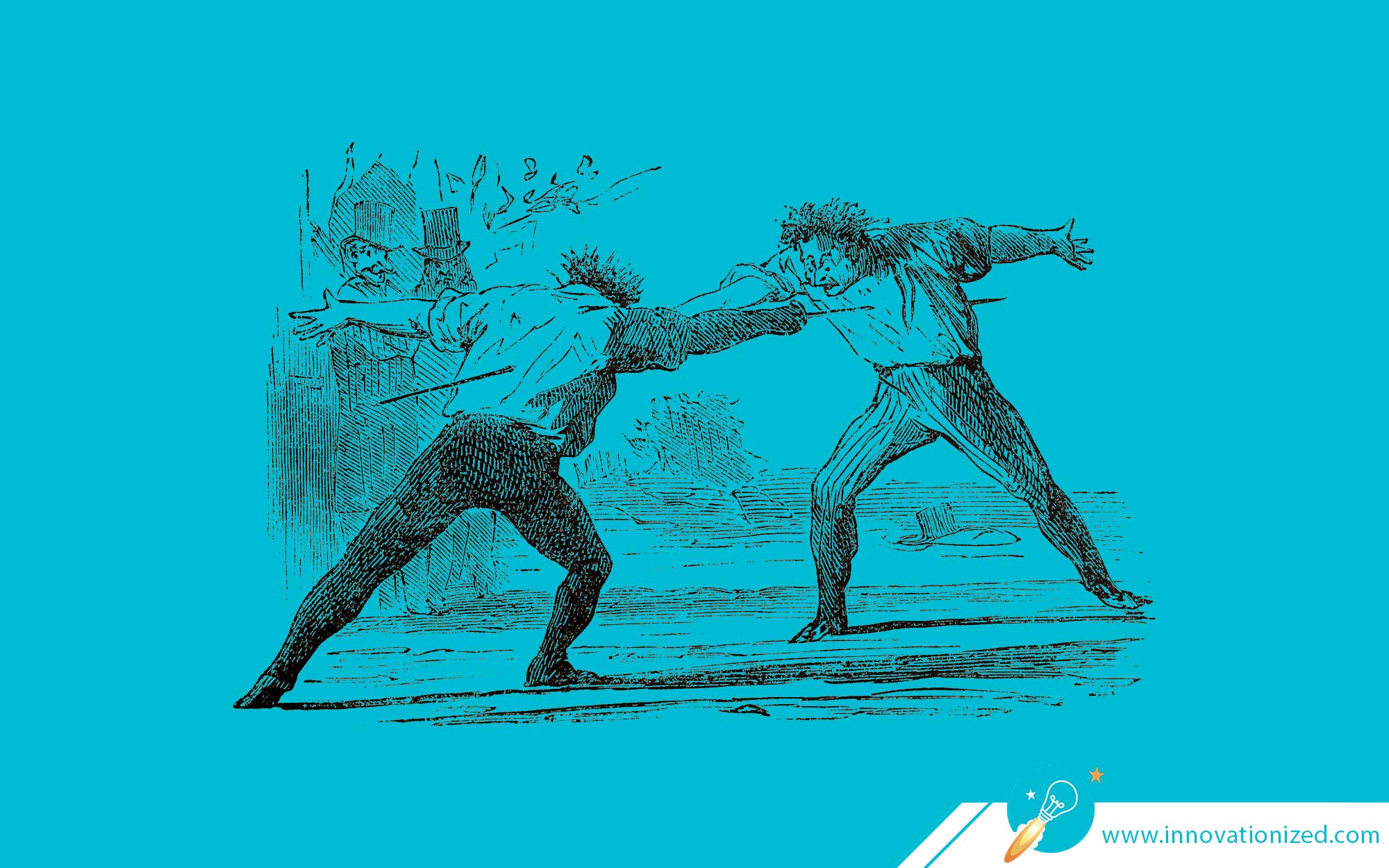True to their revulsion for big, successful companies, the antitrusters are rallying against the Kroger-Albertsons merger. But which is the real threat, big companies, or big government?
Let’s look at former Labor Secretary, Robert Reich’s reasons for opposing the Kroger-Albertsons merger as an example. He is typically articulate and eloquent in making the case against capitalism.
Are big companies, as Robert Reich argues, a threat to consumer choice and interests? Click To TweetWhile Reich and other antitrusters see big companies as a threat to competition and consumer interests, the truth is, bigger companies can only get bigger through voluntary trade and offering superior value to customers. Thus, they are a benefit not a threat. The real threat is the big government advocated by antitrusters like Reich.
Reich attacks the Kroger-Albertsons merger here:
The ~$25 billion Kroger-Albertsons merger could affect grocery stores relied on by 85 million households. The company could jack up prices even higher and pay workers even less.
This is a disaster in the making.
The FTC has the power to intervene and stop it. They must act. pic.twitter.com/Ztn02inLhq
— Robert Reich (@RBReich) March 7, 2023
https://twitter.com/RBReich/status/1633166537317322754
Let’s look at Reich’s key claims in the order he presents them.
“Just five companies control 60% of American grocery sales.”
Reich states:
“Corporate concentration in the grocery market is already a huge problem. Just five companies control 60% of American grocery sales.”
True, but so what. I say: What an impressive five companies! What incredible efficiency, productiveness, and service they must be providing in order to gain and hold that market share.
Reich: “This means less consumer choice and more opportunity for grocery stores to jack up prices.”
This is a common claim, but it’s false.
Companies operate in a market and are subject to the law of supply and demand. That law doesn’t disappear simply because there is one less company, or because a company grows bigger.
Any attempt to “jack up” prices to make bigger profits, simply attracts competitors and investment. Investors are looking for returns above the average market rate. It’s the constant threat of competition which keeps prices low.
The facts support this. For example, Walmart has not raised prices as it has grown larger, it has lowered them.
In fact, some of the most competitive markets have fewer, but larger companies. Where you have a lot of small companies, costs are invariably higher, because these companies lack economies of scale.
Are companies gouging consumers under the guise of inflation?
Reich continues…
“Big corporations are using the excuse of inflation to pass price increases through to you!”
Inflation is real, caused by the very government that Reich invokes to oppose the Kroger-Albertsons deal. Costs are rising, and of course they get passed on to buyers, the same way raising the minimum wage gets passed on to buyers.
Inequality is so obviously wrong, no need to make an argument
Reich goes on to bemoan the disparity between executive compensation and the common worker.
“Rodney McMullen (Kroger CEO) compensation is 679 times that of the typical Kroger employee.”
Reich makes no argument. We’re just supposed to accept that as an obvious injustice.
Rodney McMullen’s is not just an associate or worker who does the job better. McMullen’s job involves knowledge and skills that the typical Kroger employee doesn’t even have. The jobs are incomparable. It’s like comparing the compensation of the janitor with the anesthetist at a hospital. It’s a meaningless comparison. Let them switch jobs for a day and that will quickly become clear.
A CEO’s job is not physical labor, it’s not “pen-pushing,” it’s far more intellectual, and demanding
It involves knowledge and decisions that must incorporate complex factors such as finance, the economy and market trends, evolving customer preferences, the competition, and a lot more. It involves an incredible range of intellectual ability including integration, analysis, projection, imagination, and complex trade-offs and evaluations that few people are capable of pulling off.
Not to mention, that the compensation of executives is nobody’s business, except the stockholders.
Can big companies raise prices at will?
Reich again repeats the fallacy that prices are arbitrary and rise with fewer competitors.
“Grocery prices are already going through the roof. Kroger buying Albertsons gets rid of the roof altogether.”
No. To repeat, size doesn’t make a company exempt from the law of supply and demand.
Prices are rising due to actions by interventionists like Reich. Massive spending and expansion of the money supply caused inflation. With more dollars chasing fewer goods, the price of those now relatively scarcer goods rise to absorb those extra dollars and demand.
It’s the law of demand and supply applied to dollars.
The blame lies not with “greedy corporations,” but with the all-powerful politicians, with “monopoly” power over our money supply, who are devaluing the dollar, eroding savings, and doing untold damage to the economy and our financial well-being.
Can big companies exploit labor by lowering wages at will?
“A Kroger owned mega company can also get away with paying its workers less than it already does. Fewer competitors means grocery workers have fewer choices of who to work for.”
You have one less company in grocery, but so what?
You have better companies to choose from.
Bigger companies are usually a lot better in terms of work environment, benefits, and opportunities for growth. They are companies that are proven to be viable and healthy, not fly-by-night operations, or teetering on the brink of bankruptcy.
“[T]he weight of the general evidence is that the firms indicted under the antitrust laws were not abusing consumers, and that the laws have tended, instead, to protect competitors and reduce efficiency throughout the market.” -Dominick T. Armentano
The truth is, in a free market, size is a sign of virtue
The reason companies grow to be leaders in a free market, is because they provide better products at better prices than their competitors. They do this through being more efficient and lowering costs, while providing what shoppers want, at the highest quality and at the lowest price.
In short, they are more productive and serve customer needs better than any other company.
Shoppers vote with their dollars to reward (grow) or penalize (contract) companies, according to the company’s performance across its products, service, and prices.
Such companies grow into mega companies, because they are very, very good at what they do.
To maintain quality, they must retain the best talent
To be good at what they do they have to have good employees.
Excellent employees are critical to running an excellent operation. It’s impossible to maintain superior customer service and efficient operations with bad and unhappy workers, which is what you’d have if you paid below market rate for employees.
According to the Kroger website:
“[O]ur average hourly wage [is] more than $17. With comprehensive benefits factored in, our average hourly compensation is over $22, with generous benefits like affordable healthcare, 401(k)s and pensions that many of our competitors don’t offer.”
Employees are also eligible for an education benefit of up to $21,000.
And of course, workers who show initiative and develop the higher skills that the company needs, can move up and into new, more challenging and more rewarding roles.
“Big is bad” (except when it comes to government)
Reich concludes:
“Corporate consolidation is bad for everyone, except the super rich. It’s bad for workers, consumers, and the economy as a whole, and driving extreme wealth imbalance.”
In fact, the opposite is true. As companies grow and merge, they generally get better, more efficient, and can provide more products and services at lower costs because of economies of scale, and their wider and deeper range of resources. This benefits customers, and especially the less wealthy.
“A mega company would equip Kroger to compete with the likes of Walmart.” -Dr. Kimberlee Josephson
“We can’t afford to let another supermarket giant gobble up an even bigger piece of the American pie.”
Firstly, supermarket giants don’t “gobble up” the pie, they create it, and continually make it bigger and better. Secondly, we as customers of the company “gobble up” the pie.
You’d think someone purporting to be concerned with the welfare of the less wealthy would celebrate a bigger, cheaper pie for customers.
Reich and his ilk seek the power they accuse companies of having
The real problem with Reich and the big business haters, is deeper than spreading a few fallacies. They pose as defenders of helpless exploited citizens, abused by the coercive power wielded by big companies. The truth is, companies have no such power, it is the antitrusters who seek that power.
Big companies can only get big through satisfying the needs of their customers better than their competitors. Thus, in a free market, such big companies represent superior value.
Force is the exclusive domain of government, not business.
It is only the state that can use force and truly violate anyone’s rights. And Reich proposes doing exactly that. It is Reich and the “trust-busters” who seek to manipulate the market, restrict trade, and arbitrarily overrule the decisions and will of business owners and their millions of customers.
“Antitrust is a gun given to failure to aim at success.” -Harry Binswanger
The government should have zero interest in the Kroger-Albertsons deal. It should respect the rights and choices of the company owners and the customers that willingly do business with them. It is their willing association and mutually beneficial trade that have led to growing Kroger and Albertsons into the large, efficient, value-creating enterprises they are today.
References
- Gary Hull, The Abolition of Antitrust (Transaction Publishers, New Brunswick, NJ, 2005)
- Brian P. Simpson, Markets Don’t Fail!, (Lexington Books, Lanham, MD, 2005)
- Michael Dahlen, Ending Big Government, (Mill City Press, Minneapolis, MN, 2015)
- Kimberlee Josephson, “What Reich Gets Wrong About the Kroger-Albertsons Merger and What He Misses Completely,” American Institute for Economic Research, URL: https://www.aier.org/article/what-reich-gets-wrong-about-the-kroger-albertson-merger-and-what-he-misses-completely/
- “Life at Kroger,” the Kroger Company website, URL: https://www.thekrogerco.com/careers/life-at-kroger/
- Robert Reich, “Kroger-Albertsons Merger a Disaster in the Making,” URL: https://twitter.com/RBReich/status/1633166537317322754





